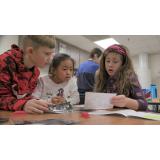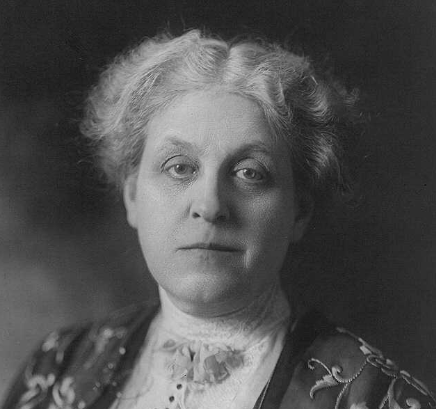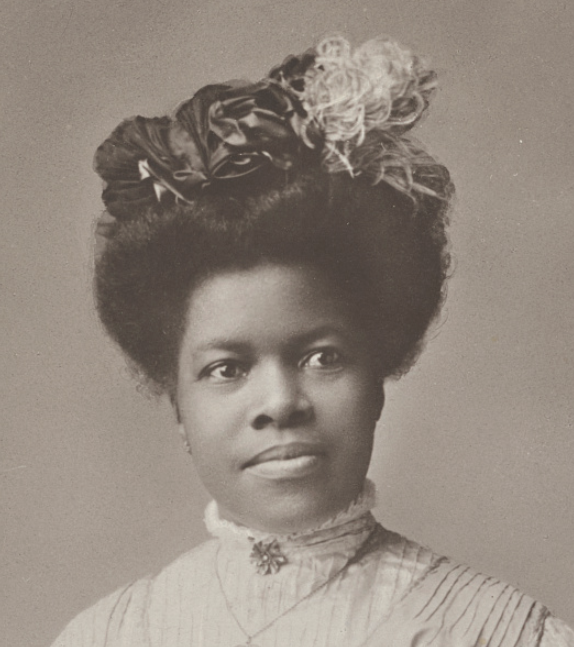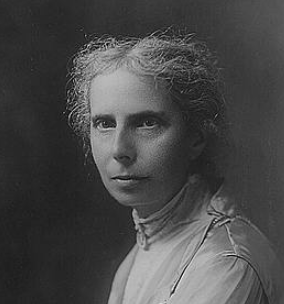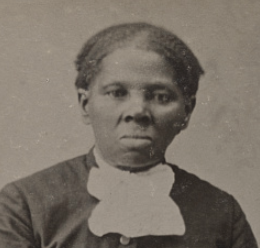What do we mean by culture when we speak of Culturally Relevant Pedagogy (CRP)? Appropriately grounded in her own community, Gloria Ladson-Billings (“But That’s Just Good Teaching: The Case for Culturally Relevant Pedagogy”) conducted her landmark research in majority African-American schools. Certainly race, ethnicity, and gender have long driven promotion and support for culturally responsive teaching. Today, given our own agency’s nearly 50 years of work in Special Education, we at Emerging America urge application of CRP with the large number of students with disabilities. Students with disabilities belong to many communities–by geography, interest and activities–the same as any students. Yet it is worth asking how students with disabilities can benefit from exploring the history and culture of people with disabilities. How might these students gain from having the choice to act in solidarity with diverse cultures of other people with disabilities?
In his 1977 speech celebrating successful advocacy for regulations to enforce Section 504 of the Rehabilitation Act of 1973, San Francisco activist and wheelchair user Ed Roberts declared: “Whenever we have brought ourselves together, whenever we have joined various disabilities together, we find our strength.” Roberts called not just for political change, but for outreach to “raise the consciousness of our fellow Americans with disabilities, to help them come out from the back wards, from the institutions, from the garbage heaps of our society.” Building on the successes of the 504 advocates and other struggles, this cross-disability movement united for the first time in human history to win broad bi-partisan passage of the 1990 Americans with Disabilities Act.
Protests and advocacy by disability rights groups have won political influence and created communities of mutual support, from the 1988 “Deaf President Now” protests at Gallaudet University to the mobility rights movement and Autistic Self Advocacy Network.
How empowering it can be to engage students with disabilities in investigating this history! How vital for them to consider their own relationship to communities of people with particular disabilities or the larger cross-disability movement. How effective a means to build success as they research and devise solutions to the needs of people with disabilities in their own schools and towns.
Emerging America invites you to use our free Accessing Inquiry clearinghouse of resources on teaching students with disabilities. You might start with “Disability History through Primary Sources.” You will find teacher-created lesson plans, timelines and narratives of Disability History, as well as links to primary sources at the Library of Congress, Disability History Museum, and more. From there, work through the site to explore a wealth of effective strategies to challenge students with disabilities to succeed academically, to deepen their cultural competence, and to become civically engaged in their community.
English/Language Arts Social Studies/History Special Education Disability History Culturally Relevant Pedagogy CRP
Replies displayed by creation date
How timely with regard to NYC. That is the topic of considerable discussion here so I appreciate this group.
Thanks for the reminder, Rich. My brother has Asperger's and grew up in a time when nobody knew what that was, which made him feel like he was somehow "less than." When Greta Thunberg spoke up about her Asperger's and how her difference was her superpower, I thought about my brother and all the young people now who can see themselves in this remarkable young woman.
Thanks for sharing that, Jessica. Among disability rights advocates and disability historians, everyone has a personal story, either their own or a story about someone very close to them. In my case, disability rights activists in college in the early 1980s first educated me. Then one of my best friends, Doug Kruse, became paralyzed by a drunk driver. Doug and his wife Lisa Schur are now leading researchers on both employment and civic action by people with disabilities. (See for example, this news story about an emerging voting bloc of people with disabilities.)
 Rich Cairn
has made a valuable contribution by compiling the resource list.
Rich Cairn
has made a valuable contribution by compiling the resource list.
A popular local bakery in my community closed for a day to build a more accessible entrance. There were an amazing number of Facebook likes. A big community initiative is becoming a “dementia friendly” community. A big component of that is training for businesses, volunteer groups, cukural organizations etc.
Testimonials
- I love that there is new info on the site daily!
- I had a wonderful time working with the Library of Congress and learning about all of the resources at my fingertips!
- The TPS Teachers Network has an equal exchange of ideas. You know it's not a place where you're being judged.
- My colleagues post incredibly fine resources and ideas....the caliber of the suggestions and resources make me feel that I take a lot from it. It's a takeaway. And I hope that I can give back as much as I get.
- Going into this school year, I have a fantastic new resource for my own instruction and to share with my colleagues!
- I am very glad that I discovered the TPS Teachers Network through RQI. Great resources can be hard to find out there on the internet!

